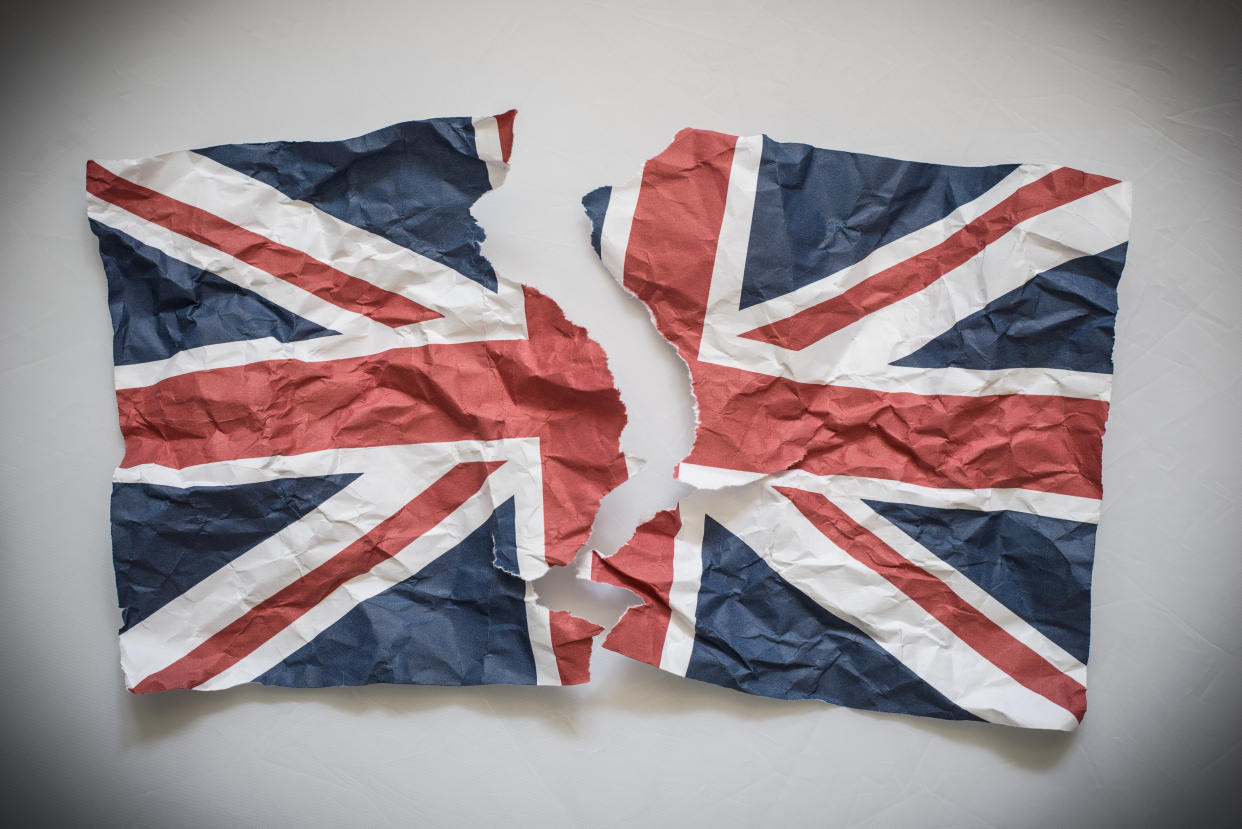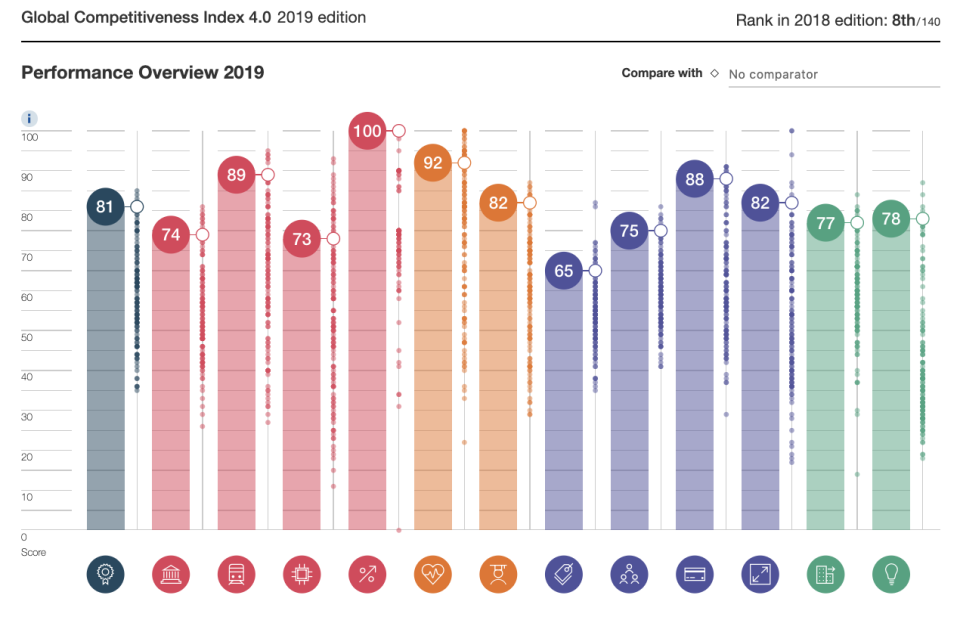Brexit hits Britain's competitiveness in a major country ranking

Britain has dropped down a place in one of the world’s most highly-anticipated reports on country competitiveness.
Every year the World Economic Forum (WEF) releases its benchmark Global Competitiveness Report that looks at 98 indicators across 140 countries to determine the overall ranking. Each indicator uses a scale from 0 to 100, to signify how close an economy is to the ideal state or “frontier” of competitiveness. Those indicators are then organised into 12 pillars, such as health, skills, financial system, infrastructure, and institutions.
READ MORE: US-China trade war pushes Singapore to overtake US as world's most competitive economy
The report is then used as a tool by over 100 of the world’s leading companies and 100 international, civil society and academic organisations to see how they can make the economy, workforces, and businesses more productive and integrate equality and inclusion into the new economy, aiming to reach 1 billion people with improved economic opportunities.
According to the overall ranking table, the UK has slipped by another position to reach 9th place, after slipping last year to 8th. Meanwhile, Singapore placed first and the US second.

The biggest risk issue to Britain’s growth is impending Brexit. Initially, Britain was meant to leave the European Union in March. However, after former prime minister Theresa May was granted a Brexit negotiation period but still failed to get a deal, which the EU agreed to, through parliament several times, she stepped down.
The current prime minister Boris Johnson has until 31 October until Brexit happens — although it is looking more likely that Britain will leave the remaining 27-nation bloc without a deal.
A no-deal Brexit is the worst possible outcome for the UK economy and businesses — as it leaves a vacuum over what rules and regulations will govern anything from immigration and trade. Even the UK government’s contingency plans over a no-deal Brexit are still open to change on the day.
READ MORE: No-deal Brexit will hit UK economy hardest and make debt skyrocket
This week, a new report, entitled The IFS Green Budget 2019, by the Institute for Fiscal Studies in association with Citi and the Nuffield Foundation, said that a no-deal Brexit would be “economically considerably worse, even under a relatively benign scenario” and make UK debt skyrocket.
It said UK debt will be pushed to its highest since the 1960s as borrowing was likely to rise to £100bn ($122.9bn) and total debt would soar to 90% of national income.
Over the last day, the new head of the International Monetary Fund echoed the IFS’s concerns and warned that Brexit in whatever form will be "painful."


